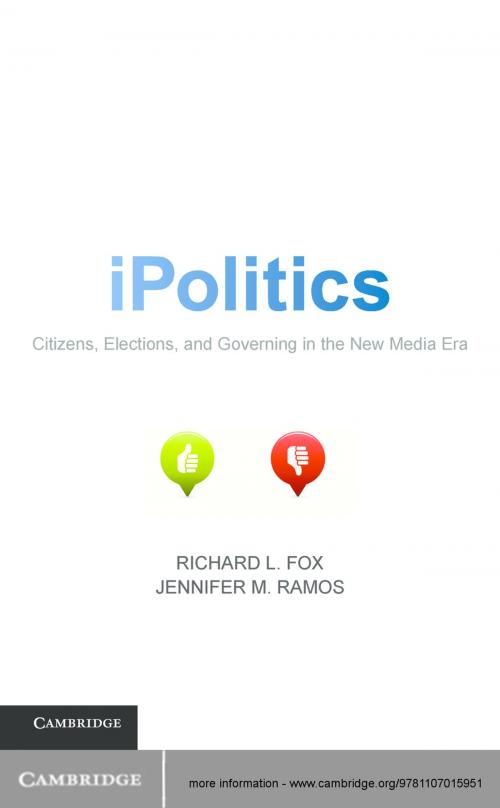iPolitics
Citizens, Elections, and Governing in the New Media Era
Nonfiction, Social & Cultural Studies, Political Science, Government, Business & Finance| Author: | ISBN: | 9781139210102 | |
| Publisher: | Cambridge University Press | Publication: | November 21, 2011 |
| Imprint: | Cambridge University Press | Language: | English |
| Author: | |
| ISBN: | 9781139210102 |
| Publisher: | Cambridge University Press |
| Publication: | November 21, 2011 |
| Imprint: | Cambridge University Press |
| Language: | English |
Politicians rely on Twitter, Facebook and YouTube to exercise political power. Citizens around the world also use these tools to vent political frustrations, join political groups and organize revolutions. Political activists blog to promote candidates, solicit and coordinate financial contributions and provide opportunities for volunteers. iPolitics describes the ways in which new media innovations change how politicians and citizens engage the political arena. Among other things, contributors to this volume analyze whether the public's political knowledge has increased or decreased in the new media era, the role television still plays in the information universe, the effect bloggers have had on the debate and outcome of healthcare reform, and the manner in which political leaders should navigate the new media environment. While the majority of contributors examine new media and politics in the United States, the volume also provides a unique comparative perspective on this relationship using cases from abroad.
Politicians rely on Twitter, Facebook and YouTube to exercise political power. Citizens around the world also use these tools to vent political frustrations, join political groups and organize revolutions. Political activists blog to promote candidates, solicit and coordinate financial contributions and provide opportunities for volunteers. iPolitics describes the ways in which new media innovations change how politicians and citizens engage the political arena. Among other things, contributors to this volume analyze whether the public's political knowledge has increased or decreased in the new media era, the role television still plays in the information universe, the effect bloggers have had on the debate and outcome of healthcare reform, and the manner in which political leaders should navigate the new media environment. While the majority of contributors examine new media and politics in the United States, the volume also provides a unique comparative perspective on this relationship using cases from abroad.















